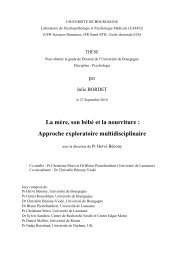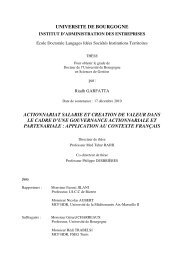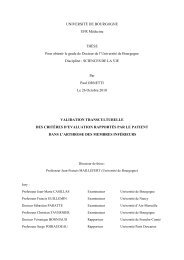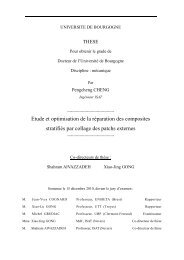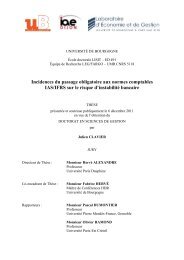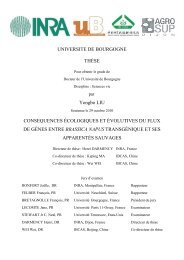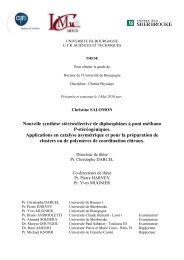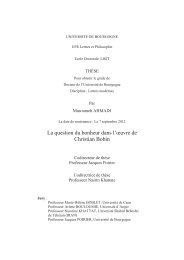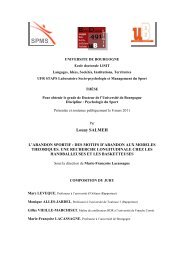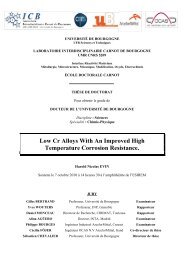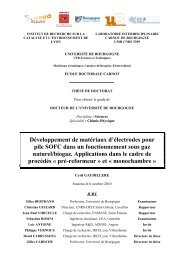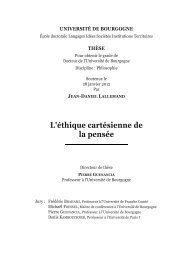4.4. Symmetric Novikov algebras Therefore, [[x,y]+,[x,x]+]+ = [x,[y,[x,x]+]+]+ if and only if x 2 (xy) + x 2 (yx) = x(yx 2 ) + x(x 2 y). Remark that we have following identities: x 2 (xy) = x 3 y − (x 2 ,x,y) = x 3 y − (x,x 2 ,y), x 2 (yx) = (x 2 y)x − (x 2 ,y,x) = x 3 y − (y,x 2 ,x), x(yx 2 ) = (xy)x 2 − (x,y,x 2 ) = x 3 y − (y,x,x 2 ), x(x 2 y) = x 3 y − (x,x 2 ,y). It means that we have only to check the formula (y,x 2 ,x) = (y,x,x 2 ). It is clear by the identities (III) and (V). Then we can conclude that J(N) is a Jordan algebra. Corollary 4.4.18. If (N,B) is a symmetric Novikov algebra satisfying (V) then (J(N),B) is a pseudo-Euclidean Jordan algebra. Proof. It is obvious since B([x,y]+,z) = B(xy + yx,z) = B(x,yz + zy) = B(x,[y,z]+), for all x,y,z ∈ J(N). Remark 4.4.19. Obviously, Jordan-Novikov algebras are power-associative but in general this is not true for Novikov algebras. Indeed, if Novikov algebras were power-associative then they would satisfy (V). That would imply they were Jordan-admissible. But, that is a contradiction as shown in Example 4.4.16. Lemma 4.4.20. Let N be a Novikov algebra then [x,yz]+ = [y,xz]+, for all x,y,z ∈ N. Proof. By (III), for all x,y,z ∈ N one has (xy)z + y(xz) = x(yz) + (yx)z. Combined with (IV), we obtain: (xz)y + y(xz) = x(yz) + (yz)x. That means [x,yz]+ = [y,xz]+, for all x,y,z ∈ N. Proposition 4.4.21. Let (N,B) be a symmetric Novikov algebra then following identities: (1) x[y,z] = [y,z]x = 0, and therefore [x,yz]+ = [x,zy]+, (2) [x,y]+z = [x,z]+y, (3) [x,yz]+ = [xy,z]+ = x[y,z]+ = [x,y]+z, (4) x[y,z]+ = [y,z]+x, hold for all x,y,z ∈ N. Proof. Let x,y,z and t be elements in N. (1) By Proposition 4.4.6 and Lemma 4.4.8, L [y,z] = 0 so one has (1). (2) We have B([x,y]+z,t) = B(y,[x,zt]+) = B(y,[z,xt]+) = B([z,y]+x,t). Therefore, [x,y]+z = [z,y]+x. Since the product [ , ]+ is commutative then [y,x]+z = [y,z]+x. 122
4.4. Symmetric Novikov algebras (3) By (1) and Lemma 4.4.20, [x,yz]+ = [x,zy]+ = [z,xy]+ = [xy,z]+. Since B is associative with respect to the product in N and in J(N) then B(t,[xy,z]+) = B([t,xy]+,z) = B([t,yx]+,z) = B([y,tx]+,z) = B(tx,[y,z]+) = B(t,x[y,z]+). It implies that [xy,z]+ = x[y,z]+. Similarly, one has: B([x,y]+z,t) = B(x,[y,zt]+) = B(x,[y,tz]+) = B(x,[t,yz]+) = B([x,yz]+,t). So [x,y]+z = [x,yz]+. (4) By (2) and (3), x[y,z]+ = [x,y]+z = [y,x]+z = [y,z]+x. Corollary 4.4.22. Let (N,B) be a symmetric Novikov algebra then (J(N),B) is a symmetric Jordan-Novikov algebra. Proof. We will show that [[x,y]+,z]+ = [x,[y,z]+]+, for all x,y,z ∈ N. Indeed, By Proposition 4.4.21 one has [[x,y]+,z]+ = [2xy,z]+ = 2[z,xy]+ = 2[x,yz]+ = [x,[y,z]+]+. Hence, the product [ , ]+ are both commutative and associative. That means J(N) be a Jordan- Novikov algebra. It results that if a Novikov algebra is symmetric then it is Jordan-admissible. In fact, we have the much stronger result as follows: Proposition 4.4.23. Let N be a symmetric Novikov algebra then the product on N is associative, that is x(yz) = (xy)z, for all x,y,z ∈ N. Proof. First, we need the lemma: Lemma 4.4.24. Let N be a symmetric Novikov algebra then N 2 ⊂ Z(N). Proof. By Lemma 4.4.8, one has [x,y] = xy−yx ∈ Ann(N) ⊂ Z(N), for all x,y ∈ N. Also, by (4) of Proposition 4.4.21, x[y,z]+ = [y,z]+x, for all x,y,z ∈ N, that means [x,y]+ = xy + yx ∈ Z(N), for all x,y ∈ N. Hence, xy ∈ Z(N), for all x,y ∈ N, i.e. N 2 ⊂ Z(N). Let x,y,z ∈ N. By above Lemma, one has (yz)x = x(yz). Combined with (IV), (yx)z = x(yz). On the other hand, [x,y] ∈ Ann(N) implies (yx)z = (xy)z. Therefore, (xy)z = x(yz). A general proof of the above proposition can be found in [AB10], Lemma II.4 which holds for all symmetric left-symmetric superalgebras. By Corollary 4.4.9, if N is a symmetric Novikov algebra then g(N) is 2-step nilpotent. However, J(N) is not necessarily 2-step nilpotent, for example the one-dimensional Novikov algebra Cc with c 2 = c and B(c,c) = 1. If N is a symmetric 2-step nilpotent Novikov algebra then (xy)z = 0, for all x,y,z ∈ N. So [[x,y]+,z]+ = 0, for all x,y,z ∈ N. That implies J(N) is also a 2-step nilpotent Jordan algebra. The converse is also true. 123
- Page 1:
Université de Bourgogne - Dijon UF
- Page 4 and 5:
Remerciements Je remercie l’Ambas
- Page 6 and 7:
Contents 3.4.2 Quadratic dimension
- Page 8 and 9:
Introduction structures can be dete
- Page 10 and 11:
Introduction and Di red (n + 2) th
- Page 12 and 13:
Introduction and obtain the followi
- Page 14 and 15:
y Introduction We realize that with
- Page 16 and 17:
Introduction by I. Bajo, S. Benayad
- Page 18 and 19:
Introduction (2) there exists an i-
- Page 20 and 21:
xix
- Page 22 and 23:
Notations 0 Ik where J = ∈ gl(2
- Page 24 and 25:
1.1. Definitions and gε(V ) = {C
- Page 26 and 27:
1.2. Nilpotent orbits Lie algebra g
- Page 28 and 29:
1.2. Nilpotent orbits where µi = i
- Page 30 and 31:
1.2. Nilpotent orbits The point of
- Page 32 and 33:
1.3 Semisimple orbits We recall the
- Page 34 and 35:
1.4. Invertible orbits Let us now c
- Page 36 and 37:
1.5. Adjoint orbits in the general
- Page 38 and 39:
2.1. Preliminaries (3) Set the map
- Page 40 and 41:
2.1. Preliminaries Proof. Let I be
- Page 42 and 43:
2.2. Singular quadratic Lie algebra
- Page 44 and 45:
If l = k then we stand at (k − 1)
- Page 46 and 47:
2.2. Singular quadratic Lie algebra
- Page 48 and 49:
Consider Then dim(g) = 6 ∑ i=3 2.
- Page 50 and 51:
2.2. Singular quadratic Lie algebra
- Page 52 and 53:
2.2. Singular quadratic Lie algebra
- Page 54 and 55:
2.2. Singular quadratic Lie algebra
- Page 56 and 57:
2.2. Singular quadratic Lie algebra
- Page 58 and 59:
2.2. Singular quadratic Lie algebra
- Page 60 and 61:
2.2. Singular quadratic Lie algebra
- Page 62 and 63:
2.2. Singular quadratic Lie algebra
- Page 64 and 65:
2.2. Singular quadratic Lie algebra
- Page 66 and 67:
(2) g g ′ if and only if g i g
- Page 68 and 69:
2.3. Quadratic dimension of quadrat
- Page 70 and 71:
2.3. Quadratic dimension of quadrat
- Page 72 and 73:
2.3. Quadratic dimension of quadrat
- Page 74 and 75:
2.4. 2-step nilpotent quadratic Lie
- Page 76 and 77:
2.4. 2-step nilpotent quadratic Lie
- Page 78 and 79:
2.4. 2-step nilpotent quadratic Lie
- Page 81 and 82:
Chapter 3 Singular quadratic Lie su
- Page 83 and 84:
3.1. Application of Z × Z2-graded
- Page 85 and 86:
3.1. Application of Z × Z2-graded
- Page 87 and 88:
3.1. Application of Z × Z2-graded
- Page 89 and 90:
3.1. Application of Z × Z2-graded
- Page 91 and 92: 3.2. The dup-number of a quadratic
- Page 93 and 94: 3.3. Elementary quadratic Lie super
- Page 95 and 96: 3.3. Elementary quadratic Lie super
- Page 97 and 98: 3.4. Quadratic Lie superalgebras wi
- Page 99 and 100: 3.4. Quadratic Lie superalgebras wi
- Page 101 and 102: 3.4. Quadratic Lie superalgebras wi
- Page 103 and 104: 3.4. Quadratic Lie superalgebras wi
- Page 105 and 106: 3.4. Quadratic Lie superalgebras wi
- Page 107 and 108: 3.5. Singular quadratic Lie superal
- Page 109 and 110: 3.5. Singular quadratic Lie superal
- Page 111 and 112: 3.5. Singular quadratic Lie superal
- Page 113 and 114: 3.6. Quasi-singular quadratic Lie s
- Page 115 and 116: 3.6. Quasi-singular quadratic Lie s
- Page 117 and 118: Chapter 4 Pseudo-Euclidean Jordan a
- Page 119 and 120: 4.1. Preliminaries Proof. The asser
- Page 121 and 122: 4.1. Preliminaries T (x,y) = φ(x)(
- Page 123 and 124: 4.1. Preliminaries (3) π(xx ′ )y
- Page 125 and 126: 4.2. Jordanian double extension of
- Page 127 and 128: 4.2. Jordanian double extension of
- Page 129 and 130: 4.3. Pseudo-Euclidean 2-step nilpot
- Page 131 and 132: 4.3. Pseudo-Euclidean 2-step nilpot
- Page 133 and 134: Proof. 4.3. Pseudo-Euclidean 2-step
- Page 135 and 136: 4.3. Pseudo-Euclidean 2-step nilpot
- Page 137 and 138: 4.4. Symmetric Novikov algebras (2)
- Page 139 and 140: 4.4. Symmetric Novikov algebras Lem
- Page 141: 4.4. Symmetric Novikov algebras (3)
- Page 145 and 146: 4.4. Symmetric Novikov algebras Lem
- Page 147 and 148: 4.4. Symmetric Novikov algebras Pro
- Page 149 and 150: Appendix A In this appendix, we rec
- Page 151 and 152: Appendix A Lemma A.4. Assume that C
- Page 153 and 154: Appendix B Here we prove: Lemma B.1
- Page 155 and 156: Appendix C We will classify (up to
- Page 157 and 158: Appendix C Lemma C.3. The element I
- Page 159 and 160: Appendix D In the last appendix, we
- Page 161 and 162: Bibliography [AB10] I. Ayadi and S.
- Page 163 and 164: [Sch55] R. D. Schafer, Noncommutati
- Page 165 and 166: Index Bε, 3 E(g,B,δ), 53 Iε(V ),
- Page 167 and 168: normal form, 5 Jordan-admissible, 1



